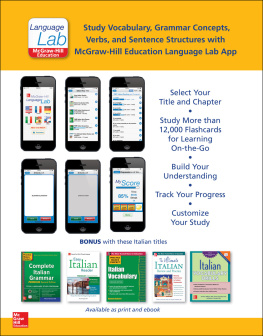Learn Tamil in 30 Minutes JK STYLES Published by Book Branch, 2017.
While every precaution has been taken in the preparation of this book, the publisher assumes no responsibility for errors or omissions, or for damages resulting from the use of the information contained herein. LEARN TAMIL IN 30 MINUTES First edition. February 17, 2017. Copyright 2017 JK STYLES. ISBN: 978-1386120292 Written by JK STYLES. 10 9 8 7 6 5 4 3 2 1
Table of Contents
Introduction
Tamil ( tami) is the language closest to Proto-Dravidian among the Dravidian language family.
Spoken predominantly by Tamils in India, Sri Lanka, Malaysia, and Singapore, it has smaller communities of speakers in many other countries. As of 1996, it was the eighteenth most spoken language, with over 74 million speakers worldwide. It is one of the official languages of India, Singapore and Sri Lanka. Tamil is one of the longest surviving classical languages in the world. It has been described as "the only language of contemporary India which is recognizably continuous with a classical past" and having "one of the richest literatures in the world". Tamil literature has existed for over 2000 years.
The earliest epigraphic records found on rock edicts and hero stones date from around the 3rd century BCE. The earliest period of Tamil literature, Sangam literature, is dated from ca. 300 BCE 300 CE. Tamil language inscriptions written c. 1st century BCE and 2nd century CE have been discovered in Egypt, Sri Lanka and Thailand. The two earliest manuscripts from India, to be acknowledged and registered by UNESCO Memory of the World register in 1997 and 2005 were in Tamil.
More than 55% of the epigraphical inscriptions (about 55,000) found by the Archaeological Survey of India are in the Tamil language. According to a 2001 survey, there were 1,863 newspapers published in Tamil, of which 353 were dailies. It has the oldest extant literature amongst other Dravidian languages. The variety and quality of classical Tamil literature has led to its being described as "one of the great classical traditions and literatures of the world." Tamil is closely related to Malayalam, and more distantly related to Kannada and Telugu. It is not related to the languages spoken in northern India, though it does contain a large number of loan words from Sanskrit.
Pronunciation guide
Vowels
a like 'a' in "apple", 'a' in "cake", "a" in "amen" e like 'e' in "magazine", 'e' in "bed" (often silent at the end of a word) i like 'i' in "pine", 'i' in "fin" o like 'ow' in "low", like 'o' in "top" u like 'oo' in "hoop", like 'u' in "cup"
Consonants
b like 'b' in "bed" c like 's' in "supper", 'k' in "kid" d like 'd' in "dog" f like 'ph' in "phone" g like 'g' in "go", 'j' in "jello" h like 'h' in "help" (often silent in the UK and other Commonwealth countries) j like 'dg' in "edge" k like 'c' in "cat" l like 'l' in "love" m like 'm' in "mother" n like 'n' in "nice" p like 'p' in "pig" q like 'q' in "quest" (with "u", almost always) r like 'r' in "row", like 'r' in "feather" (often silent in the UK and other Commonwealth countries at end of word) s like 'ss' in "hiss", like 'z' in "haze" t like 't' in "top" v like 'v' in "victory" w like 'w' in "weight" x like 'cks' in "kicks", like 'z' in "haze" (at beginning of a word) y like 'y' in "yes", like 'ie' in "pie", like 'ee' in "flee" z like 'z' in "haze"
Common diphthongs
ay like 'ay' in "say" ai like 'ay' in "say" au like 'awe' ee like 'ee' in "see" ei like 'ay' in "say" ey like 'ay' in "say", like 'ee' in "see" ie like 'ee' in "see" oi like 'oy' in "boy" oo like 'oo' in "food", like 'oo' in "good" ou like 'ow' in "cow", like 'oo' in "food", like 'o' in "cot" ow like 'ow' in "cow" oy like 'oy' in "boy" ch like 'ch' in "touch" sh like 'sh' in "sheep" th like 'th' in "this", like 'th' in "those" gh like 'f' in "fish" ph like 'f' in "fish"
Phrase list
Basics
Hello.
Vaakkam Hello. (informal) (hy) (Hi) (as used in English) How are you? ? Eppai irukkka? Fine, thank you. Nall irukkinn What is your name? ? ungGa pEyaru enna? My name is ______ . ______ en pEyaru ______ Nice to meet you. ThanGala santhithadhu mikka magizhcchi Please. . nandri. nandri.
You're welcome. Nalvaravu Yes. mm. No. Illai. (getting attention) mannikkavum. Excuse me. (begging pardon) thayavu seithu. I'm sorry. I'm sorry.
Ennai mannikavum. Goodbye pOi varukirEn. Goodbye (informal) varEn. See you tomorrow nalai parkalam. I can't speak name of language [well]. (formal) name of language enakku name of language pesa theriyaathu (informal) name of language Do you speak English? AangilathiL UraiyaaduveergaLa? Is there someone {here/around-here} who speaks English? ingGe evaravathu AangilathiL UraiyaaduveergaLa? Help! uthavi veNdum . (formal) name of language enakku name of language pesa theriyaathu (informal) name of language Do you speak English? AangilathiL UraiyaaduveergaLa? Is there someone {here/around-here} who speaks English? ingGe evaravathu AangilathiL UraiyaaduveergaLa? Help! uthavi veNdum .
Look out! Sariyaaga paar. Good morning. kaalai vaNakkam. Good evening. maalai vaNakkam. Good night (to sleep) nalliravu Secret.
Ragasiyam I'm looking forward to... Naan yethirparthu konde irukirEn Have a pleasant journey. Ungal payanam nandraaga amayattum. I wish you have a nice day Intha Nal Iniyia Nalaga Malarum I don't understand. explain clearly / again Puriyalavillai.
Problems
Leave me alone. ennai thaniyaaga vidungaL. ennai thaniyaaga vidungaL.
Don't touch me! ennai thodaathe;(informal) ennai thodaatheergaL (Formal) I'll call the Police. Kavalthuraiyai azhaipEn I need your help. ungGaL udhavi vEndum. (formal) ; ungGaLudaiya Udhavi vEndum -(Informal) It's an emergency. migavum nerukadiyana nilai I don't know where I am naan engee erukiren endru theriyalavillai ( equal to I'm lost) I lost my bag. en paiyai ThulaithuvittEn I missed my "Bag" En pai Thulainthuvittathu.
I lost my wallet. en Pana Paiyai ThulaithuvittEn. I'm sick. en odambu sariyaga illai. I've been injured. enakku kaayam ErpattuLLathu.
I need a doctor. enakku oru Maruthuvar vEndum Can I use your phone? ungaL Kaipeesiyai naan PayanpaduthikoLLaLaama? Eagerly waiting Kaaththirukkiren
Numbers
one (ondru) two (irendu) three (moondru) four (naangu) five (ainthu) six (aaru) seven (yEzhu) eight (yettu) nine (onbathu) ten (pathu) eleven (pathinondru) twelve (pannirendu) thirteen (pathimoondru) fourteen (pathinaangu) fifteen (pathinainthuu) sixteen (pathinaaru) seventeen (pathinEzhu) eighteen (pathinettu) nineteen (patthonbathu) twenty (irupathu) twenty one (irupatthu onnu) twenty two (irupatthu rendu) twenty three (irupatthu moonu) thirty (mup-ppathu) forty (naar-pathu) fifty (iam-pathu) sixty (aru-pathu) seventy (ezhu-pathu) eighty (en-pathu) ninety (thonnooru) one hundred (nooru) two hundred (iru nooru) three hundred (mun nooru) 1000 one thousand (aayiram) 2000 two thousand (rendaayiram) 100,000 hundred thousand (noorayiram) {Indian system} 1,000,000 one million (pathu noorayiram) 10,000,000 ten million (oru kOdi) {Indian system} 1,000,000,000 one thousand million in UK, one billion in USA (Nigarputham) 1,000,000,000,000 one billion in UK, one trillion in USA (Karpam) number _____ (train, bus, etc.) number _____ (...) half half (arai) less less (kuraivu/ kuraivaaga) more more (athigam)
Time
now ippO(...) later appuram(...) before munnaadi(...) after pinnaadi(...) morning kaalai(...) afternoon mathiyam / mathiyaanam(...) evening malai / saayingkalam(...) night iravu / raatthiri(...)
Clock time
one o'clock AM kaalai oru mani (...) two o'clock AM kaalai rendu mani (...) noon mathiyam / mathiyaanam (...) one o'clock PM mathiyam / mathiyaanam oru mani (...) two o'clock PM mathiyam / mathiyaanam rendu mani (...) midnight nalliravu / nadu-raatthiri (...)




